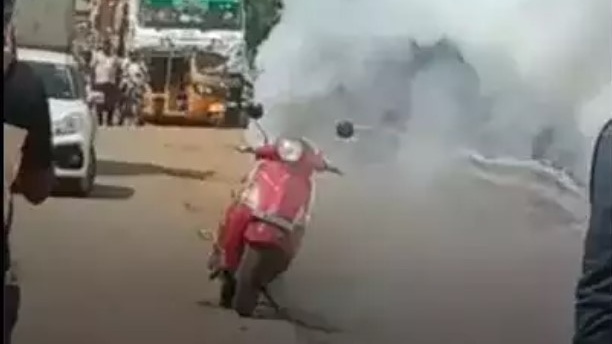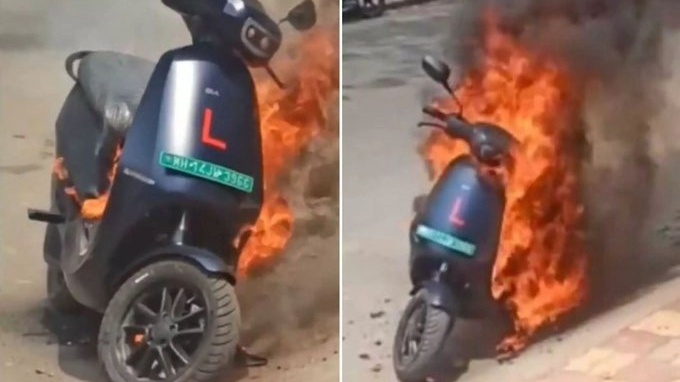Are faulty battery cells triggering EV fires in India?
A top scientist thinks so

Niti Aayog Member and eminent scientist V K Saraswat has put down the recent spate of fires in two-wheeler electric vehicles (EVs) to imported battery cells that may not be unsuitable to the country's climatic conditions. His words also suggested that this could be the impetus to make battery cells locally.
In the last one month or so, there have been multiple incidents of EVs catching fire and resulting in deaths as well as severe injuries to people.
The flurry of battery blasts has trigged national outrage, and the government has also ordered an inquiry into them. On the other hand, the various brands of EVs --- Ola, Okinawa and Pure --- have ordered recall of the batch of vehicles that they think are vulnerable to such malfunction. In total, over 6000 vehicles have been recalled by the companies concerned.
Union Surface Transport Minister Nitin Gadkari has also made it clear that recall of all defective vehicles will be ordered after the expert panel, which is probing the incident, submits its report.
The Centre for Fire Explosive and Environment Safety (CFEES) has been asked to probe the incidents of EVs catching fire.
"We should set up our own cell manufacturing plants"

Meanwhile, there has been debate going in the public space as to what is at the core of these battery blasts. It is in this context the Niti Aayog member has spoken. "Battery technology is an evolving technology. India does not manufacture battery cells at the moment," V K Saraswat was quoted as saying by the news agency PTI.
He added: "We should set up our own cell manufacturing plants at the earliest. We should make sure that whatever cells we manufacture are suitable for Indian conditions of high temperature."
Get daily insight, inspiration and deals in your inbox
Sign up for breaking news, reviews, opinion, top tech deals, and more.
Saraswat, a former chief of the Defence Research and Development Organisation (DRDO), said the fires could have been due to poor quality of cells which are not designed for high temperature and tropical climate. "What (battery) cells India is getting may not be suitable for Indian conditions. So what is important is when we import cells, we should do our own screening and rigorous testing system." He also noted that there are certain countries that have developed cells that can operate at high temperatures.
He also opined that such accidents will certainly have some impact on the penetration of batteries into the automobile sector".
A Niti Aayog member's opinion on the matter is expected to carry a lot of weight, as the government's think-tank is fully into mainstreaming the EVs in India over the next few years. Niti Aayog has already released a draft proposal on battery policy for EVs, and it is now in public domain for response from the various stakeholders.

Over three decades as a journalist covering current affairs, politics, sports and now technology. Former Editor of News Today, writer of humour columns across publications and a hardcore cricket and cinema enthusiast. He writes about technology trends and suggest movies and shows to watch on OTT platforms.